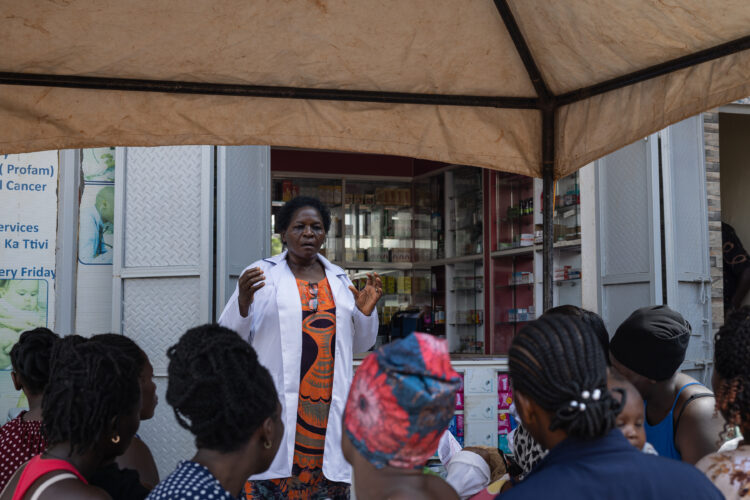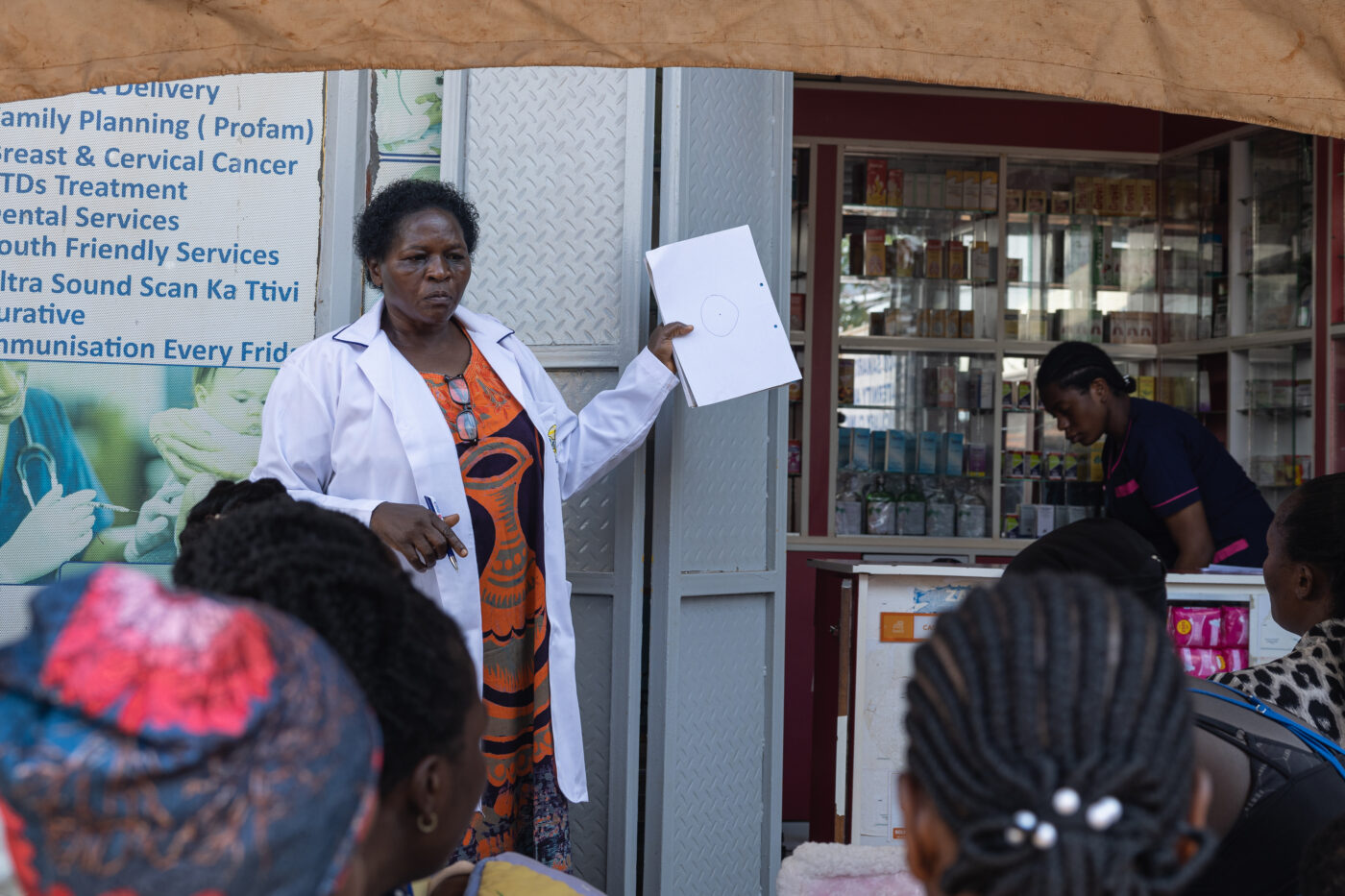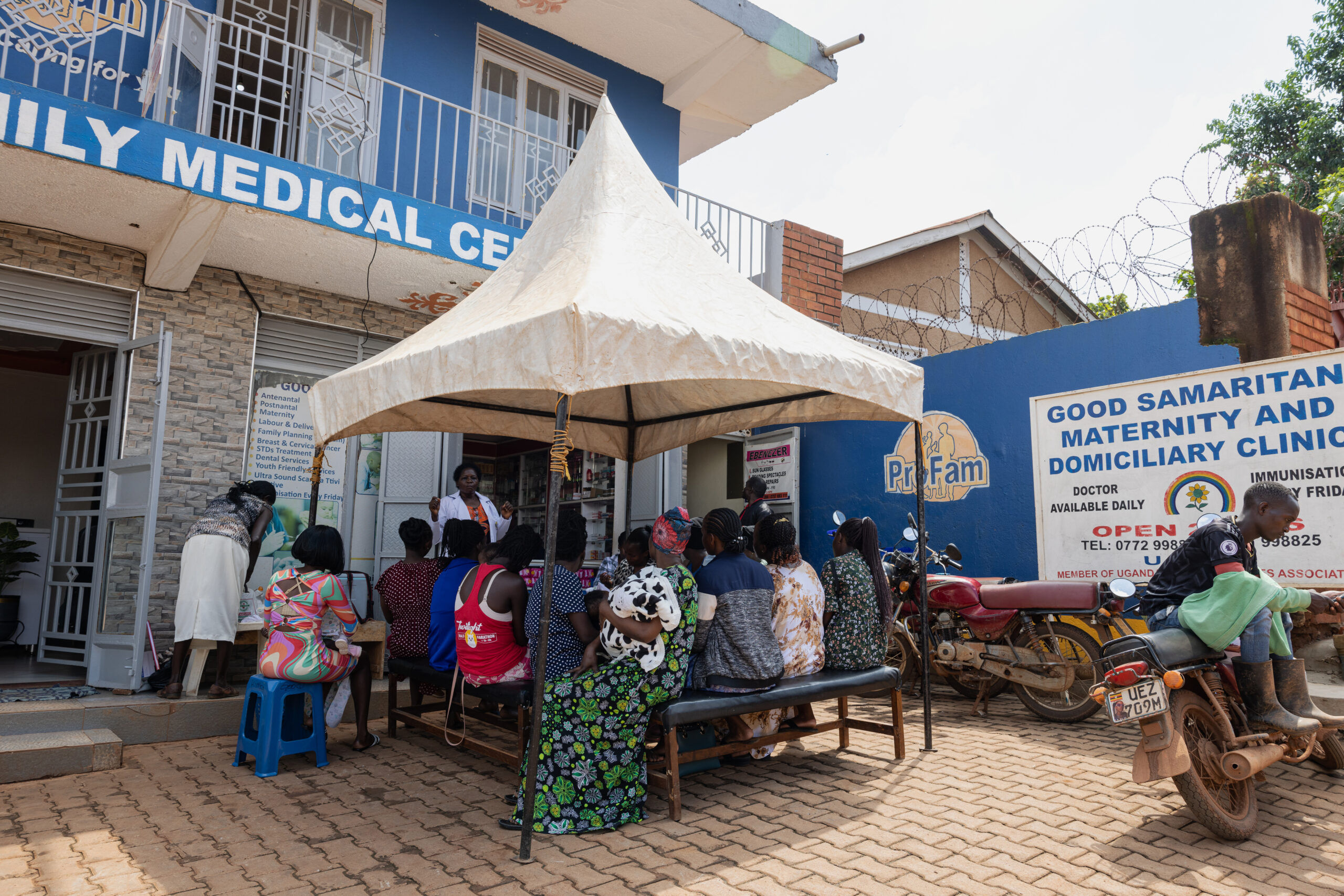Delivering Through Crisis: Midwives’ Realities in Uganda

By Ritah Niwamanya and Robina Biteyi
As midwives in Uganda, we have spent years walking alongside women, newborns, and families—through joy and grief, calm and crisis. Today, we speak not just for ourselves, but for thousands of midwives facing similar challenges across the country.
In recognition of the 2025 International Day of the Midwife, under the theme Midwives: Critical in Every Crisis, we want to share the realities midwives face in emergency settings—and why urgent action is needed to support us.

A Journey of Hope and Hardship
 Every day, midwives like us navigate some of Uganda’s most challenging landscapes—scaling the Rwenzori Mountains, braving the landslide-prone hills of Bududa and Butaleja, crossing the arid plains of Karamoja, and providing care in the densely populated slums of Katanga. These journeys come with both profound obstacles and powerful moments of hope, as we work to ensure every woman and newborn receives the care they deserve.
Every day, midwives like us navigate some of Uganda’s most challenging landscapes—scaling the Rwenzori Mountains, braving the landslide-prone hills of Bududa and Butaleja, crossing the arid plains of Karamoja, and providing care in the densely populated slums of Katanga. These journeys come with both profound obstacles and powerful moments of hope, as we work to ensure every woman and newborn receives the care they deserve.
But the challenges are real—and growing:
- Climate disasters are making health emergencies worse. When floods, droughts, and landslides hit, clinics are destroyed or cut off, and families are displaced, leaving pregnant women and newborns without the care they need.
- Severe workforce shortages mean that in many clinics, only one or two midwives serve entire communities. In emergencies, this becomes dangerous—for midwives and the people we care for.
- Poor infrastructure turns health facilities into unsafe spaces. Without clean water, power or sanitation, clinics can become hazardous instead of protective.
- Basic medicines and supplies are often missing. In the middle of an emergency, the absence of oxytocin, newborn resuscitation tools or sterile gloves can mean the difference between life and death.
- High out-of-pocket costs force families to choose between healthcare and survival. Delays in treatment can be fatal.
These are not abstract problems. We remember the mother who died from postpartum haemorrhage because the clinic had only one unit of blood. We remember the father who asked, “How will I raise our children alone?” and the child who whispered, “Where is Mama?”
According to WHO (April 2025), 170 women die for every 100,000 live births in Uganda. This is an improvement—but still far from the Sustainable Development Goal of fewer than 70 by 2030.
What Needs to Change
As midwives, we stand at the intersection of life and loss. Often, we are the only health workers reaching those most in need. To change outcomes for mothers and newborns, we need systemic action:
Deploy emergency investments in the health workforce: Governments and donors must urgently recruit, train, and support more midwives—before overburdened providers collapse and more lives are lost. Rapid response teams should be deployed to the hardest-hit areas, with fair pay, protection, and mental health support ensured for all providers.
Eliminate deadly financial barriers: Expand free maternal and newborn care and scale up emergency health funds. The full implementation of the National Health Insurance Scheme must be prioritised to ensure healthcare is accessible, affordable, and equitable. No woman should die because her family couldn’t pay.
Upskill frontline midwives for emergencies: Launch intensive, up-to-date training programmes in emergency obstetric care, newborn resuscitation, and self-care. No midwife should face a life-or-death moment without the tools and knowledge to respond.
Integrate climate resilience into health systems: Strengthen emergency preparedness by building mobile clinics, pre-positioning essential supplies, and supporting community health workers to reach families displaced by climate disasters.
Prioritise health in poverty response plans: Scale up social protection programmes that cover food, healthcare, and transport for vulnerable families. These supports are essential for protecting lives during times of crisis.
Enforce accountability in crisis response: In emergencies, every decision and every dollar must count. Transparent planning and regular audits are essential to ensure resources reach the communities that need them most.
Elevate the voices of midwives and girls: In humanitarian settings, silenced voices lead to dangerous outcomes. Safe, accessible platforms must be created for midwives, women, and girls to speak out, shape crisis response plans, and demand the care they deserve.
A Call for Action
We are walking farther, working harder, and carrying more than ever before—but we cannot do it alone. Every mother lost, every newborn buried, is a reminder of what’s at stake.
We are not asking for miracles. We are asking for action. Action that puts maternal and newborn health at the centre of crisis response. Action that sees midwives not as a line item, but as a lifeline.
We want the world to stand with us, not just celebrate us. Invest in us. Listen to us. Protect us. When midwives are equipped, supported, and empowered, it is not only babies that we deliver – It’s hope, dignity, and survival.